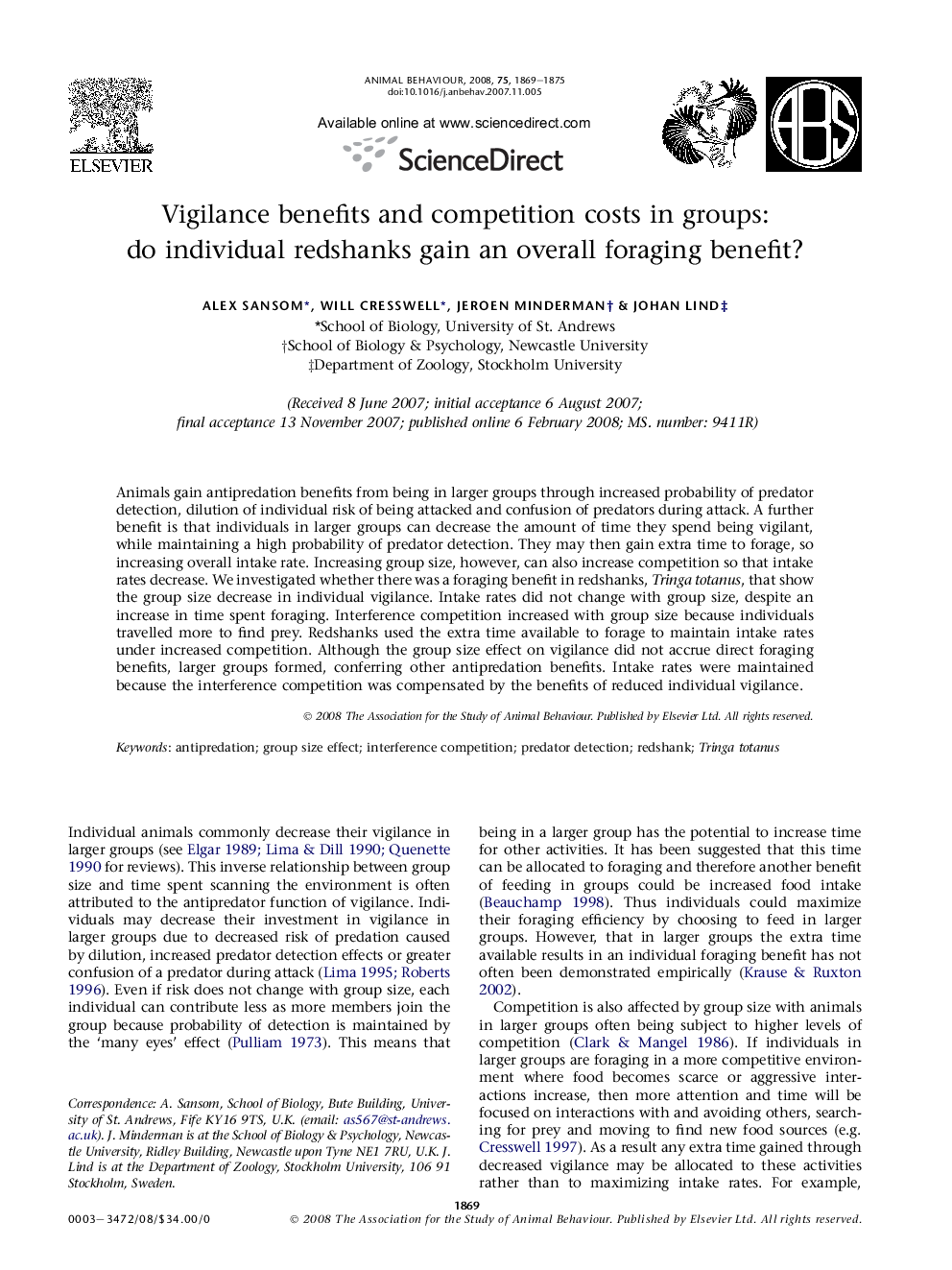| Article ID | Journal | Published Year | Pages | File Type |
|---|---|---|---|---|
| 2417667 | Animal Behaviour | 2008 | 7 Pages |
Animals gain antipredation benefits from being in larger groups through increased probability of predator detection, dilution of individual risk of being attacked and confusion of predators during attack. A further benefit is that individuals in larger groups can decrease the amount of time they spend being vigilant, while maintaining a high probability of predator detection. They may then gain extra time to forage, so increasing overall intake rate. Increasing group size, however, can also increase competition so that intake rates decrease. We investigated whether there was a foraging benefit in redshanks, Tringa totanus, that show the group size decrease in individual vigilance. Intake rates did not change with group size, despite an increase in time spent foraging. Interference competition increased with group size because individuals travelled more to find prey. Redshanks used the extra time available to forage to maintain intake rates under increased competition. Although the group size effect on vigilance did not accrue direct foraging benefits, larger groups formed, conferring other antipredation benefits. Intake rates were maintained because the interference competition was compensated by the benefits of reduced individual vigilance.
